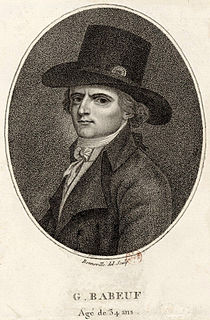A Quote by J. M. Coetzee
To me, a philosopher who says that the distinction between human and nonhuman depends on whether you have a white or a black skin, and a philosopher who says that the distinction between human and nonhuman depends on whether or not you know the difference between a subject and a predicate, are more alike than they are unlike.
Quote Topics
Related Quotes
So far as this argument is concerned nonhuman animals and infants and retarded humans are in the same category; and if we use this argument to justify experiments on nonhuman animals we have to ask ourselves whether we are also prepared to allow experiments on human infants and retarded adults; and if we make a distinction between animals and these humans, on what basis can we do it, other than a bare-faced - and morally indefensible - preference for members of our own species?
You do not settle whether an argument is justified by merely showing that it is of some use. The distinction is not between useful and useless experiments but between barbarous and civilized behaviour. Vivisection is a social evil because if it advances human knowledge, it does so at the expense of human character.
The Theatre of the Absurd has renounced arguing about the absurdity of the human condition; it merely presents it in being - that is, in terms of concrete stage images. This is the difference between the approach of the philosopher and that of the poet; the difference, to take an example from another sphere, between the idea of God in the works of Thomas Aquinas or Spinoza and the intuition of God in those of St. John of the Cross or Meister Eckhart - the difference between theory and experience.
For years I have told my students that I been trying to train executives rather than clerks. The distinction between the two is parallel to the distinction previously made between understanding and knowledge. It is a mighty low executive who cannot hire several people with command of more knowledge than he has himself.
There is only one law of Nature-the second law of thermodynamics-which recognises a distinction between past and future more profound than the difference of plus and minus. It stands aloof from all the rest. ... It opens up a new province of knowledge, namely, the study of organisation; and it is in connection with organisation that a direction of time-flow and a distinction between doing and undoing appears for the first time.
Mothers know the difference between a broth and a consommé. And the difference between damask and chintz. And the difference between vinyl and Naugahyde. And the difference between a house and a home. And the difference between a romantic and a stalker. And the difference between a rock and a hard place.
If animals are no longer quite outside the moral sphere, they are still in a special section near the outer rim. Their interests are allowed to count only when they do not clash with human interests. If there is a clash - even a clash between a lifetime of suffering for a nonhuman animal and the gastronomic preference of a human being - the interests of the nonhuman are disregarded. The moral attitudes of the past are too deeply embedded in our thought and our practices to be upset by a mere change in our knowledge of ourselves and of other animals.
Let the revolting distinction of rich and poor disappear once and for all, the distinction of great and small, of masters and valets, of governors and governed. Let there be no other differences between human beings than those of age and sex. Since all have the same needs and the same faculties, let there be one education for all, one food for all.
The denial of any distinction between foreseen and intended consequences, as far as responsibility is concerned, was not made by Sidgwick in developing any one 'method of ethics'; he made this important move on behalf of everybody and just on its own account; and I think it plausible to suggest that this move on the part of Sidgwick explains the difference between old-fashioned Utilitarianism and the consequentialism, as I name it, which marks him and every English academic moral philosopher since him.





































